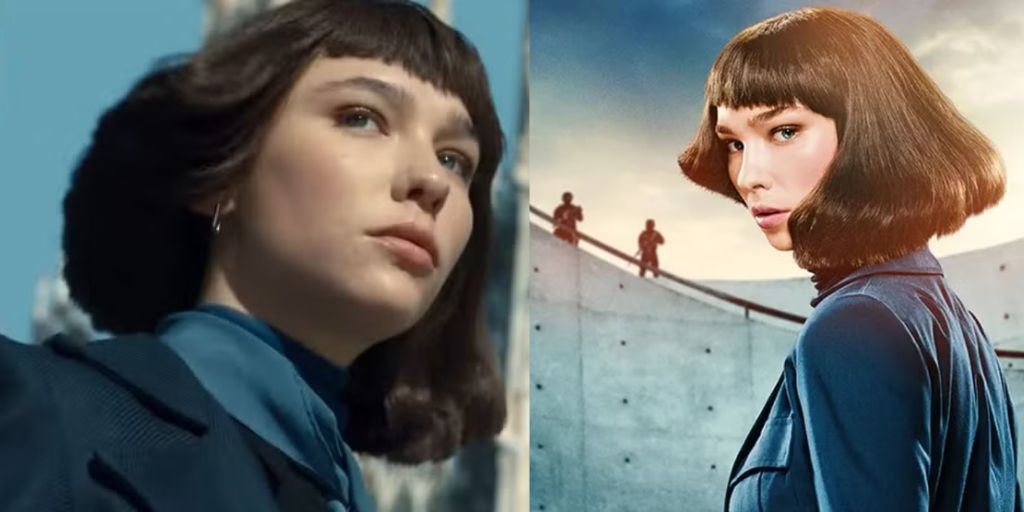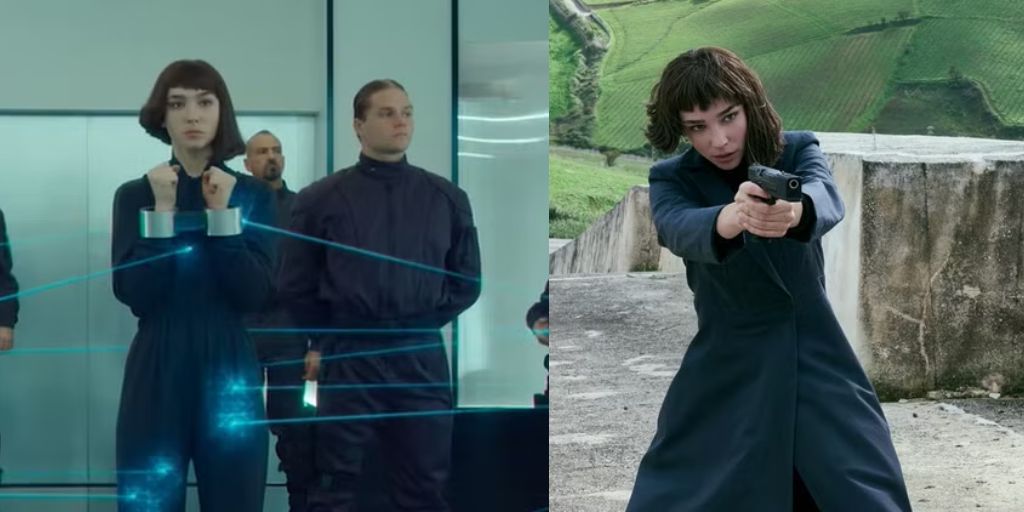Back in 2023, Citadel premiered with high hopes, featuring Priyanka Chopra Jonas and Richard Madden in lead roles. The series, produced by the Russo Brothers, known for their work on the Marvel franchise, promised a thrilling ride filled with espionage, action, and complex characters.
However, it received mixed reactions from audiences and critics alike. While some appreciated its ambitious storyline and high production values, others felt it fell short of expectations.
Despite the divided opinions, Prime Video greenlit a second season and approved the creation of international spin-offs, indicating the company’s confidence in the Citadel franchise.
One of these spin-offs is Citadel: Diana, set in Italy. This new installment expands the Citadel universe, introducing a storyline that runs parallel to the original series. Although I wasn’t particularly impressed by Citadel, I found its strong cast and a few unexpected twists made it an engaging watch.
While it did not reach the thrilling heights of Mission Impossible, it still had some noteworthy aspects worth discussing. However, Citadel: Diana feels much less like a blockbuster.
It does not increase the stakes or present a fresh take on the spy genre. If viewers were disappointed by Chopra Jonas and Madden’s series, they may find Citadel: Diana even more underwhelming.
What Is ‘Citadel: Diana’ About?
Citadel: Diana is set in Milan in the year 2030. The main character, Diana Cavaleri, portrayed by Matilda De Angelis from The Undoing, is deep undercover at Manticore’s headquarters.
Eight years before the events of the show, Diana was recruited as a Citadel agent, driven by her desire for revenge after her parents died in a plane crash that Manticore orchestrated. This tragic event set the course for her life, as she sought justice against the organization responsible for her family’s suffering.
Manticore’s efforts to destroy their competition led to Citadel fading into obscurity, leaving only one person behind to carry on the mission of protecting the world from corruption. This backstory sets the stage for Diana’s character and her motivations throughout the series.
As the story unfolds, we see Diana struggling with the weight of the Citadel legacy. She is diagnosed with a chronic illness, making her mission feel even more burdensome.
Exhausted and wanting a way out of her dangerous lifestyle, Diana finds a chance to leave the world of espionage behind. To gain her freedom, she hands over a weapon as leverage, hoping to escape the life that has consumed her for so long.
In her new life, Diana connects with Edo Zani, played by Lorenzo Cervasio, who is next in line to lead Manticore. Their relationship develops against a backdrop of tension and intrigue. Diana faces an internal battle, torn between her desire for freedom and her attraction to Edo.
This attraction raises the stakes, as Edo’s potential influence on Manticore could change the organization for the better. Diana must ultimately decide where her loyalties lie and what kind of future she wants for herself and her remaining family.
‘Citadel: Diana’s Greatest Strength Is its Stuntwork’
As a spy drama, Citadel: Diana follows a familiar structure. It features a protagonist involved in a secret mission who also finds herself romantically involved with the enemy. While the genre does not require a complicated storyline, it typically demands a higher level of action.
Unfortunately, this series falls short in that regard. There are only two major stunt-driven sequences in the entire show, which is surprisingly low for an espionage series.
However, the action scenes that are present are brilliantly choreographed and executed. In one standout moment, Diana manages to chase someone down using a zipline, showcasing her skills and determination.
The camera angles and precise direction by Arnaldo Catinari enhance these action sequences, making them the greatest strength of the series.
The tension and excitement of these moments could have been expanded, creating a more thrilling viewing experience. If more intricate and engaging action scenes were included, the spin-off might not have felt like such a missed opportunity.
Alongside the action, other details in the show also stand out, although they remain underexplored. The design of the weapons and Diana’s exotic hairstyle are particularly noteworthy.
Manticore’s advanced technology and weaponry are attributed to Edo, who wants to prove to his father, Ettore (Maurizio Lombardi), that he has the skills to upgrade the organization. Manticore Italy faces sanctions from their European counterparts in France and Germany, adding another layer of complexity to the story.
Edo’s technological prowess is evident, especially in Episode 5, where he showcases his talent in crafting high-tech gear. However, the series misses a valuable opportunity to go deeper into how his inventions relate to his brother’s death during an attack on Citadel. This connection could have added emotional depth to his character and the storyline.
Similarly, Diana’s appearance and hairstyle could have been used to reflect her persona as a mole within Manticore. Her look should connect with her efforts to maintain a low profile while carrying out her treacherous mission. More scenes of these visual elements could have enhanced the storytelling.
‘Citadel: Diana’ Does Little to Further the Russos’ Global Franchise
Despite its potential, Citadel: Diana does not succeed in making a mark on the larger Citadel franchise. The series lacks character development and relies heavily on familiar spy tropes.
Additionally, it does not fully utilize its setting to enrich the narrative. The Italian espionage headquarters could offer a unique cultural perspective, yet we are left questioning how it differs from other locations around the world.
As more international spin-offs are produced, there is a growing need for each series to stand apart in terms of cultural significance and storytelling. While Citadel: Diana tries to expand the universe, it ultimately feels like a missed chance to create something unique and compelling.
While the series does have promising moments, such as its action sequences and weapon designs, these aspects do not lead to a satisfying experience. Although it consists of only six short episodes, the lack of substance prevents it from making a lasting impression on viewers.

Audiences may find themselves binge-watching the series in just a few hours, but they will likely forget the experience shortly afterward.
As we look ahead, Citadel: Honey Bunny, a spin-off set in India, is set to debut next month. Fans of the franchise are hopeful that this new installment will take full advantage of its concept and avoid repeating the mistakes made in Citadel: Diana.
Conclusion
Citadel: Diana had the potential to be an exciting addition to the Citadel franchise, but it ultimately falls short in delivering a attractive story.
While it offers some engaging moments, the series struggles to develop its characters and show the intricate world of espionage effectively. With only a handful of action scenes, viewers may find themselves wanting more excitement and depth from the narrative.
The character of Diana Cavaleri provides a strong foundation for the story, but her journey is not fully realized. The relationship between Diana and Edo Zani could have been more compelling with deeper scenes of their motivations and backgrounds. Furthermore, the series misses opportunities to utilize its setting and cultural context to enrich the story.
Ultimately, while Citadel: Diana offers some entertaining moments and strong performances, it does not fully capitalize on its potential.
Viewers may enjoy the action scenes and the visual elements, but the full experience may leave them feeling unfulfilled. As the Citadel franchise continues to grow, fans will be eagerly watching for the next spin-off, hoping for a more exciting and engaging narrative.
Citadel: Diana will be available to stream on Prime Video worldwide starting October 10, giving viewers a chance to experience this new chapter in the Citadel universe for themselves.




